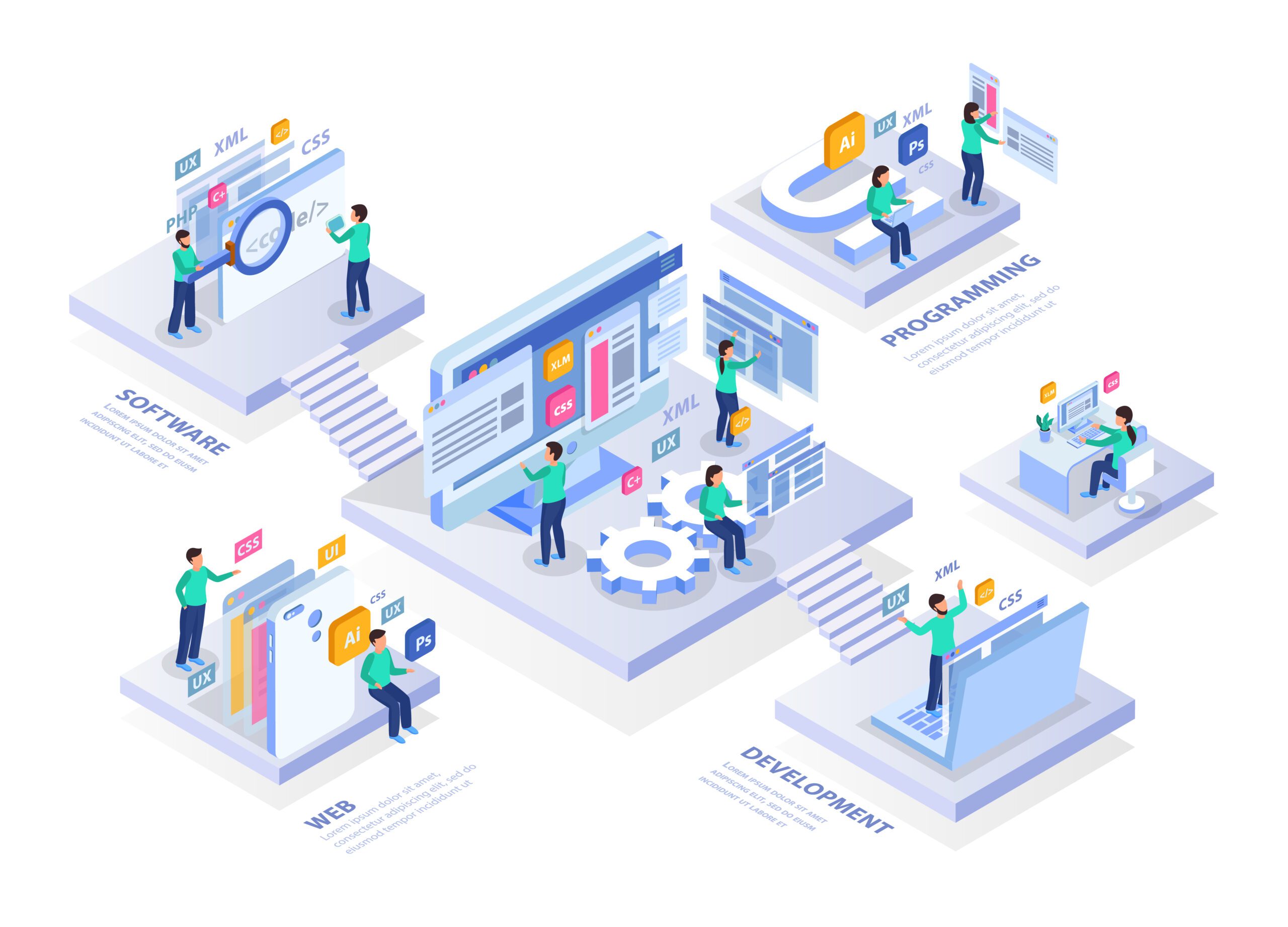Who is a web developer? A Brief Explanation

The role of a web developer is to take the web design created by the client or designer and convert them into a fully functional, user friendly website or app that runs on the internet or corporate intranet and also aligns with the client’s goals & requirements.
The main task of a web developer is to create, maintain, update, and troubleshoot any problems related to the core structure of a website.
They can work as freelancers, web consultants, or with a company. It can range from static web pages and simple apps to complex websites and applications like eCommerce, booking, social media, etc.
Table of Contents
3 Type of Web Developer : a brief detail
-
Front-End Developer
Also known as Client Side, is responsible for the visual representation that determines what the clients or people will see when they visit the website.
They ensure easy interaction with the site through buttons, images, links, menus, or even text. Optimizing the website to be responsive.
Skills: JavaScript – jQuery, Framework: (React, Angular), HTML, CSS Framework: (Bootstrap, Foundation), Version Control: (Git), Web performance, SEO, Test & Debug.
-
Back-End Developer
Also known as Server Side, is responsible for focusing on website architecture, server, back-end logic, APIs, and writing clean codes that help communicate information from the database into the browser, while keeping data integrity & security protocols in mind.
They say that back-end developer is the backbone of the website. Without them, a fully-functional website or app is impossible.
Skills: Java, Python, Ruby, C#, PHP, Database: (MySQL, Oracle Database, Mongo Db, Microsoft MySQL Server), Knowledge of APIs: – (JSON, SOAP, REST), Version Control: (GitHub, Git), Server: (Apache, AWS – Amazon Web Services, Azure, Google Cloud Platform), Test & Debug.
-
Full Stack Developer
is a hybrid model where the web developer works, on the front end & back end of the website or app.
They must have a strong understanding of the programming language, know how to manage databases and APIs, and operate in a secure environment to become a Full Stack Developer.
What are the responsibilities of a developer?
- Write clean, reusable codes for both the front and back end, so they can be used in the future
- The web developer must stay up-to-date with technology/industry trends, new programming languages, tools, etc.
- The web developer’s job is to check whether to update or modify the existing website of the client.
- Taking a backup of all the files, database, and local directory is important in case of emergency
- Collaborate with other team members or clients throughout the project.
- Create a cross-platform app that works on Smart TVs, mobile, tablets, and even desktop
- Sometimes clients ask the web developers to design and write content for the websites they have built & maintained.
- Troubleshooting website issues, problems, and bugs through testing & customer feedback to ensure the web pages have super-fast loading speed, and smooth running of the website on all browsers & devices (mobiles, tabs, desktops)
- Optimizing the site’s performance & monitoring the site’s traffic to ensure scalability
- Maintain & update the site periodically for the best user experience
- Converting text, image, audio, and video elements into a compatible web friendly format.
Here is a list of Soft Skills that every developer must endure
- Good Communication
- Teamwork
- Leadership
- Patience
- Constantly learning & keeping yourself updated with the industry
- Time Management
- Be attentive to the detailing of the website or app
- Open-Mindedness
- Be Creative
- Logical Reasoning & Critical Thinking
- Analytical Skills
- Problem Solving
- Accountability
9 reasons why a business needs web development
- Helps protect the company’s brand identity by maintaining ownership of the domain name, which avoids surrendering control of the brand to the third-party website and its ads.
- Increase accessibility of your business, and ensure your business expands globally – reaches out to a broader audience, and access to a new market.
- Provides online presence 24/7, where visitors can access or purchase the products/services – anytime (even outside business hours), anywhere.
- Creating easy navigation for the website by adding a menu, header, footer & search box for easy access to information.
- Create & maintain consistency among the pages of the website by using the same structured layout, design, font, color, logo, style, and brand name. These elements help visitors associate with the brand recognition,
- Optimize the website using the SEO technique – image optimization, keywords, titles, meta description, links to other related blogs, and much more, which helps attract organic traffic and ensures a high rank on the search engine result page (SERP).
- Good and organized content helps deliver the right message to the visitor with original, relevant & real-time information.
- Improve visitor experience on the website by quickly resolving their questions related to the company by building a dedicated support page, a list of FAQs, contact form, incorporating chat & live support.
- Analyzing the customer behavior, user engagement, conversion rates, bounce rate, and many more parameters to help keep the website running successfully.
Salary Of Web Developer
As per the PayScale Website: Update on May 2022
The average salary of a web developer in India is ₹320,759/year
Web developer (<1yr experience) – average salary in India is ₹247,908/year
Web developer (1-4yr experience) – average salary in India is ₹310,525/year
List of factors considered when determining salary:
- Company – Startup, Small-Sized Company, MNCs, etc.
- Experience – Freshers, Junior, Senior, Manager, CEO, CTO, CFO, etc.
- Location – urban areas: IT hub (Mumbai, Bangalore, Delhi, Pune, etc.) or rural areas
- Skills – Knowing different technical skills is great. Apart from technical skills, soft skills and managerial aspects are also discussed when deciding on the salary.
- Education – Diploma/Certifications, Graduate, Post-Graduate, PhD




